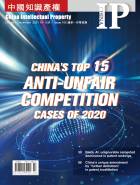
Lower Court Docket No.: 4, first instance (初), administrative case (行), (2019) Guangzhou Yuexiu District People's Court (粤0101)
STATEMENT OF THE CASE AND FACTS
Plaintiff: Guangzhou Blue Whale Short Video Technology Co., Ltd.
Defendant: Yuexiu District Administration for Market Regulation of Guangzhou City
Beijing Bytedance Technology Co., Ltd. is the registrant of "Tik Tok", ".png) ", "
", ".png) " and other trademarks. The Plaintiff, Guangzhou Blue Whale Short Video Technology Co., Ltd, formerly named Guangzhou Tik Tok Information Technology Co., Ltd, had a large number of logos of the above-mentioned trademarks and "Tik Tok" related slogans in its business premises and agreed to provide its customers with information operation services on the Tik Tok Short Video App when signing contracts with them. Defendant Yuexiu District Administration for Market Regulation of Guangzhou City issued a decision for an administrative penalty that asserted that the Plaintiff had constituted unfair competition acts, and ordered the Plaintiff to immediately stop its illegal acts of confusion and apply for name change registration, and imposed on the Plaintiff a fine of RMB 90,000. The Plaintiff refused to accept the administrative penalty decision and thus appealed to the court, requesting the decision be revoked.
" and other trademarks. The Plaintiff, Guangzhou Blue Whale Short Video Technology Co., Ltd, formerly named Guangzhou Tik Tok Information Technology Co., Ltd, had a large number of logos of the above-mentioned trademarks and "Tik Tok" related slogans in its business premises and agreed to provide its customers with information operation services on the Tik Tok Short Video App when signing contracts with them. Defendant Yuexiu District Administration for Market Regulation of Guangzhou City issued a decision for an administrative penalty that asserted that the Plaintiff had constituted unfair competition acts, and ordered the Plaintiff to immediately stop its illegal acts of confusion and apply for name change registration, and imposed on the Plaintiff a fine of RMB 90,000. The Plaintiff refused to accept the administrative penalty decision and thus appealed to the court, requesting the decision be revoked.
In the first instance, the Guangzhou Yuexiu District People's Court, Guangdong Province, held that the Plaintiff's business name contained "Tik Tok", which overlapped with the name of the "Tik Tok" app and related trademarks; nevertheless, the Plaintiff was engaged in the business activities of providing services related to "Tik Tok" app account and content, used the relevant trademark logos extensively in its business premises, and had related words like "Beijing Tik Tok Headquarters" in the text of its contracts. According to the general cognitive understanding of the public, it would be easy for them to think that the Plaintiff and the services it provided had a specific connection with the owner of the trademarks or apps such as "Tik Tok". And from inquiries of the Plaintiff's relevant customers, it appeared that the Plaintiff's acts had indeed had the effect of confusion. Therefore, the Defendant asserted that the business name and related business practices of the Plaintiff had constituted unfair competition with sufficient proof and justification. The administrative penalty decision of the Defendant based on this was in compliance with the provisions of the Anti-Unfair Competition Law and was thus not unfair. In summary of the above, the Court ruled in the first instance that all the claims of the Plaintiff were rejected. Both the Plaintiff and the Defendant accepted the verdict and rested their cases.
ANALYSIS
The verdict of this case clarified that, by registering a company name with the name "Tik Tok", which was the registered trademark and mobile app name of another entity, and by operating in the business of "Tik Tok" app account and content under the relevant trademarks and logos, had led to confusion and constituted unfair competition. It also made clear that if an application for business name registration was for the implementation of unfair competition, it would not be applicable to the principle of administrative trust protection due to its impropriety. The verdict of this case is helpful in guiding operators to operate legally in the new market environment and jointly create a fair and orderly market economic order, playing a good social effect of optimizing the business environment.
This case has been selected as one of the "2020 Top Ten Typical Intellectual Property Cases of Guangdong Courts".
|
Copyright © 2003-2018 China Intellectual Property Magazine,All rights Reserved . www.chinaipmagazine.com 京ICP备09051062号 |
|
|



